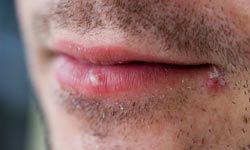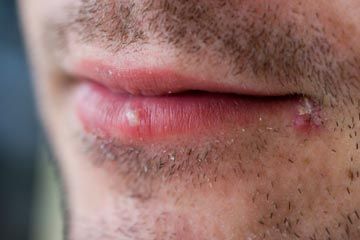Painful. Embarrassing. Unsightly.
Cold sores are many things, and, unfortunately, they're caused by a virus that those infected will carry with them for the rest of their lives [source: Mayo Clinic].
Advertisement
Despite the sobering thought that an outbreak can happen at seemingly any time, there is hope. While you cannot rid your body of the virus, it remains dormant for most of the time.
During dormancy, there are several triggers you can avoid from causing another outbreak. In addition, there are a number of treatment options that can lessen an outbreak's length and severity.
In this article, we'll look at some of the causes of a cold sore flare up and those treatments that can help in the event of an outbreak.

